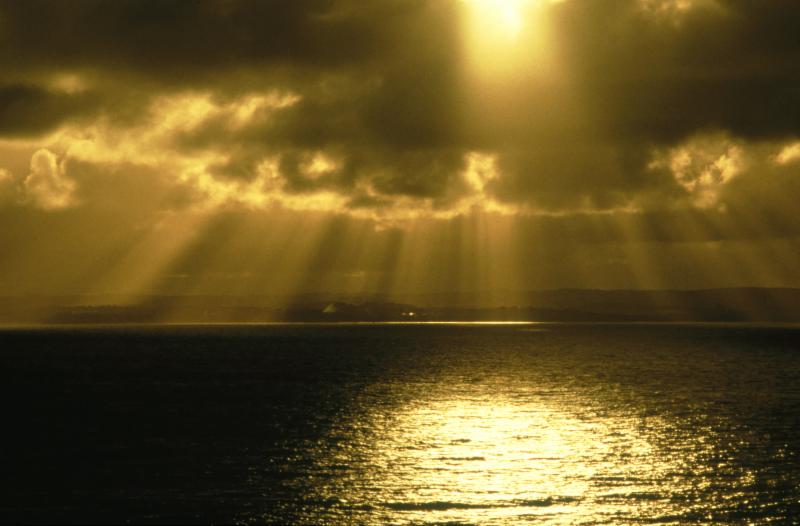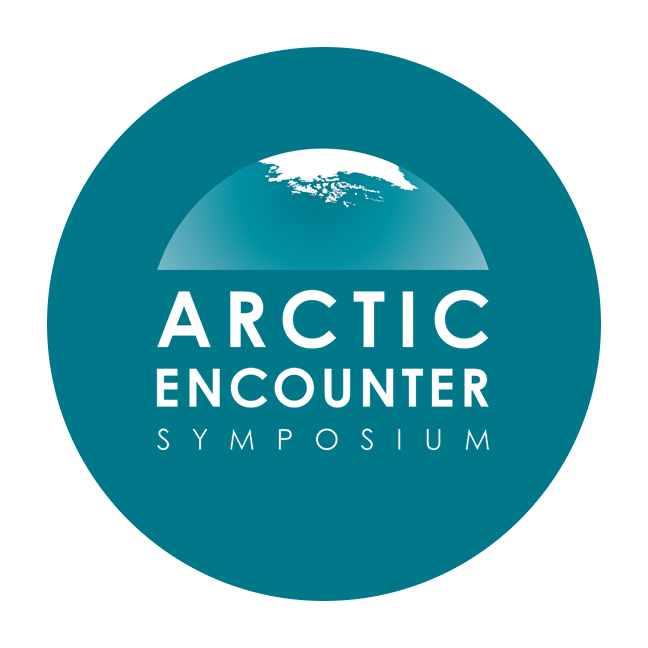|
|
|
|
|
|
|
|
|
Alaska Forum on the Environment, February 10-14, 2020 (Anchorage, Alaska USA). The 22nd Alaska Forum on the Environment will be held February 10-14, 2020, offering 6 Keynote Events, over 100 presentations, panel discussions, special events and workshops. Technical sessions include: climate change, emergency response, brownfields, marine debris, environmental regulations, fish and wildlife, forests, rural issues, energy, military issues, business issues, pollution prevention, contaminants, and more.
|
Media
 Arctic Ice Melt is Changing Ocean Currents. Arctic Ice Melt is Changing Ocean Currents. A major ocean current in the Arctic is faster and more turbulent as a result of rapid sea ice melt, a new study from NASA shows. The current is part of a delicate Arctic environment that is now flooded with fresh water, an effect of human-caused climate change.Using 12 years of satellite data, scientists have measured how this circular current, called the Beaufort Gyre, has precariously balanced an influx of unprecedented amounts of cold, fresh water-a change that could alter the currents in the Atlantic Ocean and cool the climate of Western Europe. Phys.org
Prejudices About the Arctic. The Arctic has been in the international limelight due to climate change. The whole world is concerned about melting ice and the prospect of losing the Arctic. At the same time, Arctic natural resources and ways to explore and exploit them are receiving a lot of attention. Geopolitical interests of Arctic and non-Arctic nations pave the way for Arctic development. What is missing from the picture is the human dimension of Arctic development. In her talk, Alexandra will discuss popular beliefs and prejudices about the Arctic shaped by global media and geopolitical forces. Human dimension concerns challenges and opportunities people face in the Arctic. TEDx Talks
 The US Navy is Learning How to Operate in the Arctic, and More Ships May Not be the Answer. The US Navy is Learning How to Operate in the Arctic, and More Ships May Not be the Answer. The US military has been turning more of its attention to the Arctic as a venue for so-called great-power competition with another powerful military - in this case, Russia. The US Navy has played a big role in that shift. The USS Harry S. Truman's presence at NATO's Trident Juncture exercise in late 2018 was the first time a US carrier was above the Arctic Circle since the early 1990s. The USS Theodore Roosevelt's participation in the US military's Northern Edge exercise in Alaska was the first for a carrier in a decade. Business Insider
Policy Expert Says Alaska Will be 'Nation's Vanguard' in Thawing Arctic. A national expert on Arctic policy told state lawmakers on Thursday that Alaska will be at the front line of global competition over Arctic Ocean resources. Mike Sfraga, director of the Polar Institute at the Washington, D.C.-based think tank the Wilson Center, said climate change is making the Arctic Ocean more accessible. "That's why I've called Alaska the nation's vanguard, because this is a new ocean," he said. "This is a new landscape of competition. And that's why we must be diligent in what we do, I believe, in the state of Alaska." Alaska Public Radio
Arctic Dining: Think Frozen Sashimi With a Side of Reindeer Blood. The tundra at dusk looks like the open ocean, waves of shades of blue, gray and white. Indigenous reindeer herders traverse this terrain, eking a nomadic living out of the barren land. The biting cold this time of year keeps their provisions perpetually frozen, but they sometimes lack the time - or the firewood - to cook them. The New York Times
 Climate Change is Moving Russia's Taiga North, Scientists Warn. Climate Change is Moving Russia's Taiga North, Scientists Warn. The Taiga forests of Siberia have expanded north toward the Arctic as a result of warming temperatures over the past four decades, a team of Russian and Finnish scientists has told TASS. Climate change is heating Russia at a rate more than twice the global average, thawing what was once permanently frozen ground in the Arctic tundra, the Environment Ministry warned last year. This has set off massive releases of gases like methane and carbon dioxide - previously stored in the permafrost - into the atmosphere. The Barents Observer
|
|
Future Events
ISAR-6: Arctic Research: the Decade Past and the Decade Future, March 2-6, 2020 (Tokyo, Japan). Rapid changes are taking place in the Arctic that impact regional human and natural systems, and affect the global environment. The International Symposium on Arctic Research (ISAR) will meet for the sixth time since its first symposium in 2008 to identify changes in the Arctic environment and society, and to discuss possible future sustainable development. The hosts invite all researchers with interests in the Arctic to participate in this multidisciplinary symposium and share their insights, their challenges, and to explore the possible futures of the Arctic.
 International One Health, One Future 2020 International Conference, March 11-14, 2020 (Fairbanks, Alaska USA). This year's conference, presented by University of Alaska Fairbanks Center for One Health Research in partnership with the U.S. Department of State, will host internationally recognized keynote speakers across eight themes. There will be something for all stakeholders - community members, health care providers, state and federal agency employees, researchers, educators and students. One Health recognizes the interdependence of human, animal and environmental health, and that a holistic approach to the well-being of all will lead to improved health outcomes and enhanced resilience.
Linking Experts in Polar Science and Technology, March 12, 2020 (Boulder, Colorado USA). The Polar Technology Conference (PTC) brings together polar scientists, technology developers, and field technicians from academia, state and federal agencies, the private sector, and non-governmental organizations. This interdisciplinary space provides an opportunity for technical and theoretical exchange on challenges impeding polar research and field operations. Community input is crucial to ensure that technological infrastructure investments are efficient, satisfy science drivers, and meet field requirements. The conference will address approaches to working and studying in the polar regions, including: terrestrial, marine, atmospheric, and social science disciplines; autonomous instrumentation; observation platforms; and all levels of logistical support.
High North Dialogue, March 18-19, 2020 (Bodø, Norway). Since 2007, the High North Dialogue conference series have brought together leaders of the High North - present and future - to discuss the dimensions of the changes taking place in the Arctic. The High North Dialogue 2020 will provide you with a different perspective on the future of the High North. The theme of the 2020 conference is "Business in the Arctic." The conference also includes Master and PhD courses, a research workshop, breakout sessions, the High North Hero award, and the High North Young Entrepreneur contest. Please visit our website for more information.
Arctic Science Summit Week and the 5th Arctic Observing Summit. March 27 to April 2, 2020, (Akureyri, Iceland).
The Arctic Observing Summit (AOS) is a high-level biennial summit that provides a platform to address urgent and broadly recognized needs of Arctic observing across all components of the Arctic system. The theme of AOS 2020 is Observing for Action. AOS 2020 will be held in Akureyri, Iceland (March 31-April 2) and will focus on pressing issues related to the use, design, optimization and implementation of the observing system. To that end, submissions in the form of white papers, short statements and poster abstracts are requested that address any and all aspects of the overarching theme and sub-themes.
North x North Festival + Critical Futures, April 13-19, 2020 (Anchorage, Alaska USA). North x North celebrates connection, creativity, imagination and innovation across the Circumpolar North and convenes people worldwide for a discussion about possible futures. It begins with Critical Futures, a creative conference that focuses on language, visuals and ideas for creatively and critically thinking about the future and responding to climate change, and ends with a Fest featuring film, food and music. This event is hosted by the Anchorage Museum.
 The 7th Annual Arctic Encounter, April 16-17, 2020 (Seattle, WA USA). The 2019 Arctic Encounter Seattle drew participants and stakeholders from over 20 nations, including over 80 speakers, 27 sponsors, 17 media partners, northern fashion and photography art installations, 13 guest performers, the second annual Far North Fashion Show, live podcast recording sessions, musical and spoken word performances, and over 10 artist exhibitors. The 2020 Arctic Encounter Seattle expects to increase engagement in new sectors and engage participants through policy debates, research presentations, live performances, and more. The Arctic Encounter is the largest annual Arctic policy and business conference convening in the United States, with partnerships and convening efforts worldwide. The 7th Annual Arctic Encounter, April 16-17, 2020 (Seattle, WA USA). The 2019 Arctic Encounter Seattle drew participants and stakeholders from over 20 nations, including over 80 speakers, 27 sponsors, 17 media partners, northern fashion and photography art installations, 13 guest performers, the second annual Far North Fashion Show, live podcast recording sessions, musical and spoken word performances, and over 10 artist exhibitors. The 2020 Arctic Encounter Seattle expects to increase engagement in new sectors and engage participants through policy debates, research presentations, live performances, and more. The Arctic Encounter is the largest annual Arctic policy and business conference convening in the United States, with partnerships and convening efforts worldwide.
|
|

  
4350 N. Fairfax Drive, Suite 510
Arlington, VA 22203, USA
External links in this publication, and on the USARC's World Wide Web site ( www.arctic.gov) do not constitute endorsement by the US Arctic Research Commission of external Web sites or the information, products or services contained therein. For other than authorized activities, the USARC does not exercise any editorial control over the information you may find at these locations. These links are provided consistent with the stated purpose of this newsletter and the USARC Web site.
|
|
|
|
|
|
|
|
|